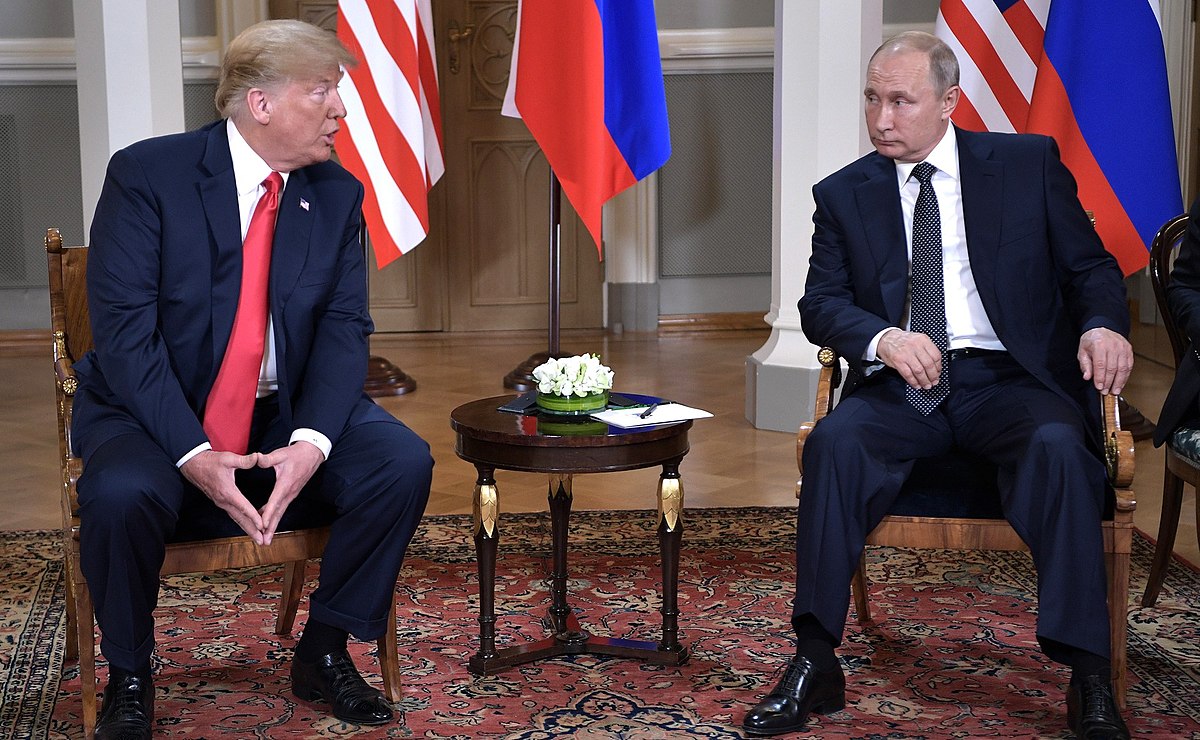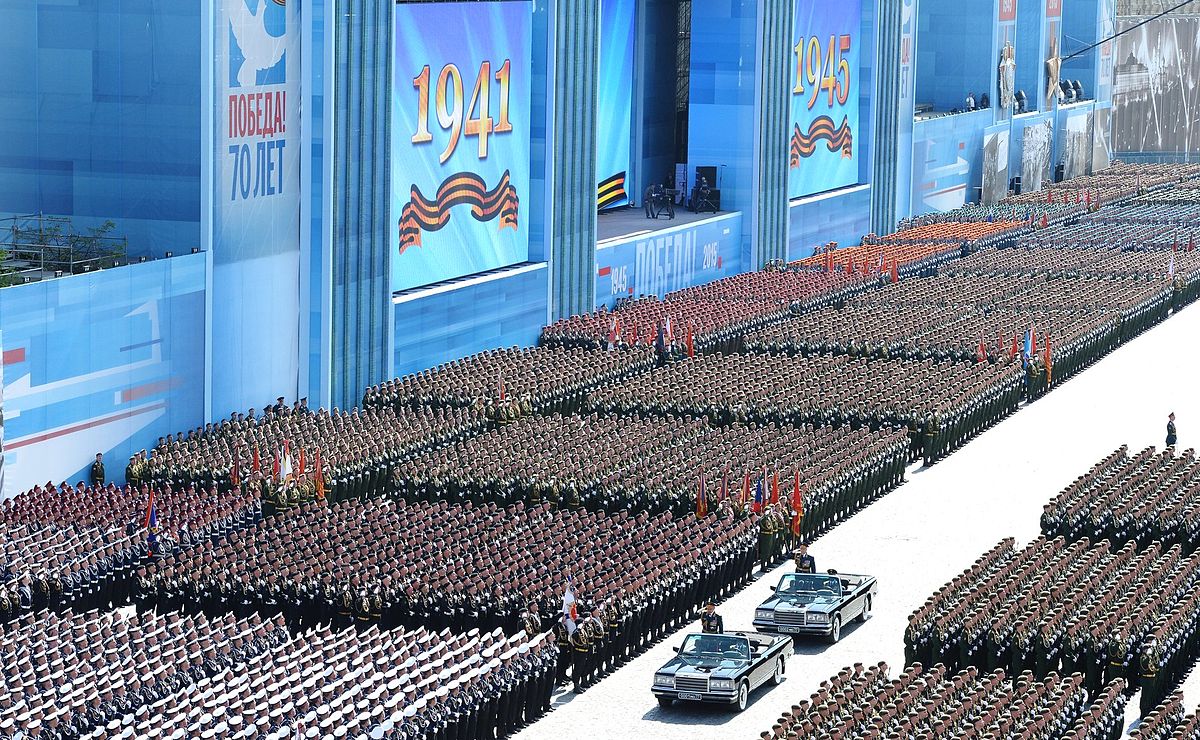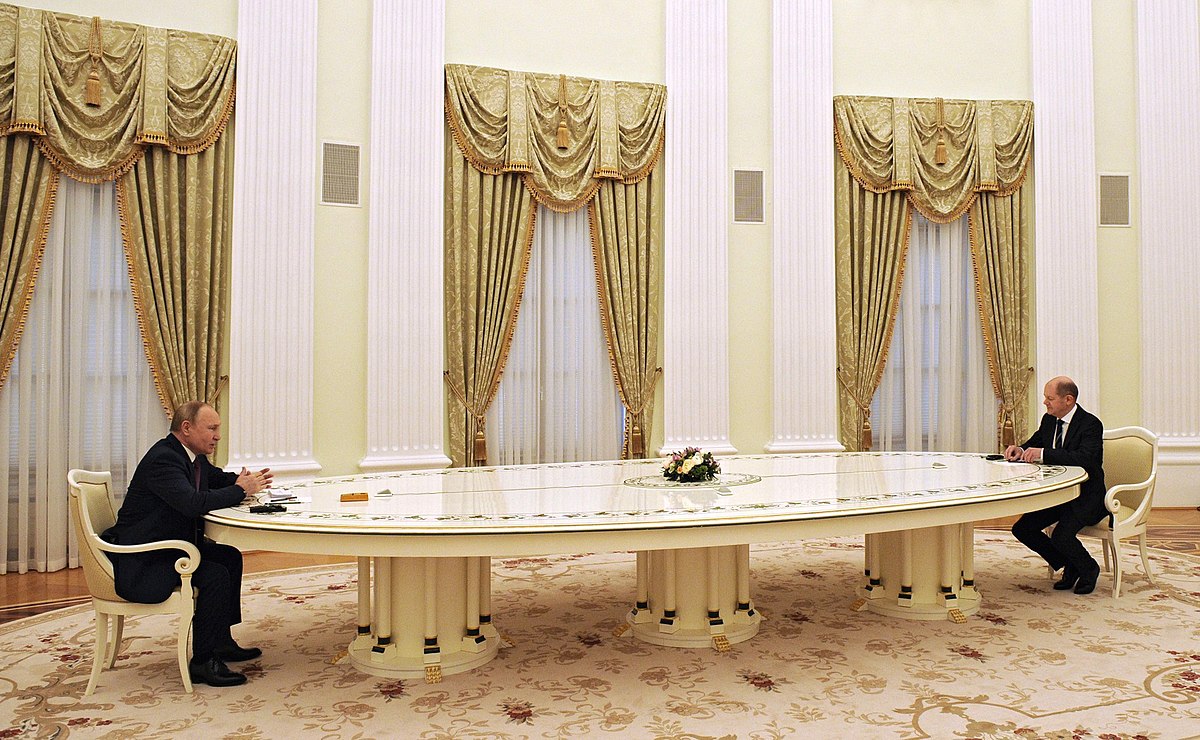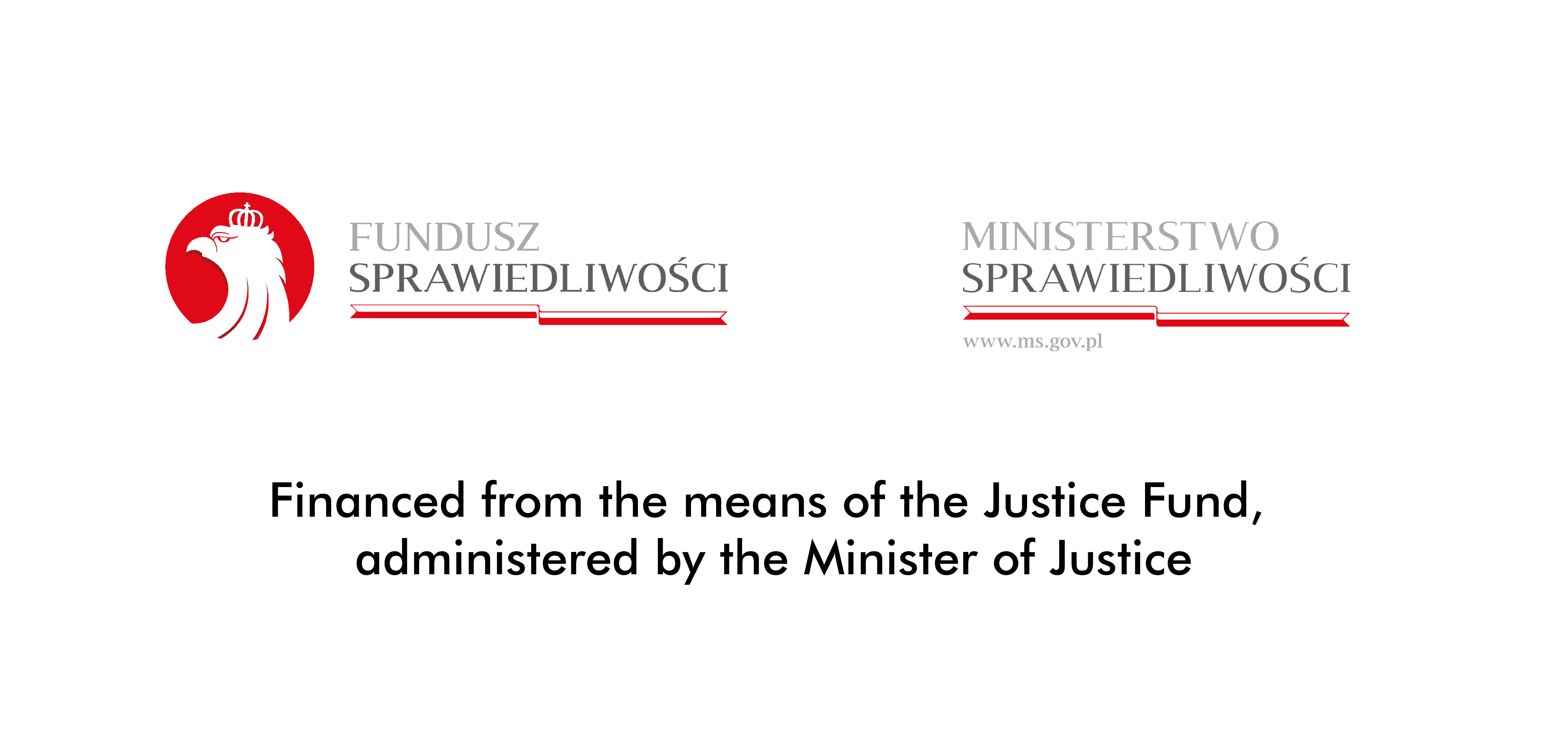Pax Americana or Russo-German Protectorate?


Suddenly, we find ourselves in a situation where there is not one single West, although not everyone is yet aware of this fact. There are two Wests. And we have to choose between them.
Rafał A. Ziemkiewicz
For more than thirty years, Polish politics has gone on without a concrete strategy. For both politicians and citizens, one simple slogan sufficed for everything: to the West. To join the West, to be like the West, to do what the West does. What this actually meant was understood intuitively, and differently in different circles, but no one had any doubts about the general direction of “the West” after half a century of Russian occupation.
And lo and behold, suddenly, we find ourselves in a situation where there is not one single West, although not everyone is yet aware of this fact. There are two Wests. And we have to choose between them.
First, the naive, Fukuyama-esque vision of the spread of Western liberal democracy throughout the world lay in ruins. As recently as two decades ago, it was widely believed that after making its mark in central Europe, the free market and democracy would take hold for good in Belarus and Ukraine, then some colorful revolution would usher them into Russia – and eventually China would democratize as well. This belief was based on the historically proven effectiveness of the free market in multiplying wealth. Authoritarian countries will get richer, thus creating a middle class in them, which will force perestroika on their governments through one path or another, setting their countries on the path of global, liberal-market convergence.
“Let’s let them get rich,” it was thus decided in the West, which was extremely convenient for the big conglomerates. Thanks to globalization, they began to grow into power, influencing not only politics, but also the interior situation of the West, which is, however, a separate issue. The power of authoritarian states increased a lot, the power of the West – decreased, as a result of the transfer of production to countries where no “human rights” prevented large corporations from maximizing profits (the negative effects of this “export of jobs” were felt especially painfully by the US and southern Europe).
The whole idea turned out to be fundamentally flawed. The process that once led Germany, Japan, and the countries of South Asia to democracy was not repeated (for it turned out that its necessary condition was American occupation). The opportunity to get rich, given to Russia and China, did not create a middle class there, but strengthened the oligarchy and, through the oligarchy, the regimes. The trillions of dollars that went to the despots were spent on armaments, including the purchase of the most advanced military technologies, in accordance with Lenin’s prophecy: “the capitalists themselves will sell us the rope on which we will hang them.” Had it not been for this transfer, which lasted for years and was profitable for the concerns increasingly emancipating themselves from the power of the states, Putin would not today be able to demolish Ukraine’s infrastructure, and the U.S. Navy would not have to fear whether it would be able to defend Taiwan.

The paths of the two Wests I write about here began to diverge as America realized that a rising China was threatening its superpower position. In Germany, on the other hand, the restoration of Russia’s power was perceived not as a threat, but as an opportunity to realize the age-old German dream of dominating the continent.
“Great nations should talk to each other,” Vladimir Putin said to Angela Merkel in 2009 during the anniversary celebrations at Westerplatte. Indeed, the “great nations” have been talking to each other for a long time, and the talks have been increasingly fruitful, as symbolized by the two Nordstream pipelines under the Baltic Sea. Already, Chancellor Schroeder has recognized the historic opportunity that the prevailing mood in the West of “let’s get them rich” creates for his country, and the entire long reign of Angela Merkel has been a consistent building of a new European order according to Bismarck’s old postulates: to dominate France and all of Western Europe, Germany needs a lasting alliance with Russia.
This time German dominance over Europe was built not on military superiority, as in the Kaiser era, but on economic advantage. And it was in this regard that the alliance with Russia was an invaluable circumstance – for Russia, for its part, offered cheap raw materials, both for German energy and for non-German industry. German industry is not innovative – its strength is the mass production of goods that are not too exclusive, but of good quality and cheap for that quality. Their low price, which makes it possible, thanks to the common currency, to flood all of Europe and practically push domestic production out of smaller markets, especially in the south, can be maintained with Germany’s exuberant “social rights” only thanks to cheap raw materials and components. But this is what is most attractive about economic cooperation with the regimes, that without regard to any human rights of citizens or workers, they can offer everything at extremely attractive prices. Incidentally, the oil and gas deposits on which Germany has become addicted with the force of a drug do not, after all, lie in Russia itself, but should be the basis of existence of smaller, long-occupied nations on whose exploitation and destruction Russia has built its superpower.
Russia was not the only “fence” giving Germany a competitive advantage over other economies – it was equally dependent in the Merkel era on China, where, in turn, the extraordinary cheapness of labor ensured very favorable prices for semi-finished goods for German industry. To further strengthen this advantage, Germany used its influence in the European Union to peddle the ideological insanity of “saving the planet” through a drastic, disproportionate reduction of CO2 emissions – in fact, its “move” outside the European Union, precisely to China, and, in long-range plans, to Russia.
It is worth noting on this occasion, therefore, that under the guise of “exporting democracy” created by the slogan “let them get rich,” was in fact the West’s complicity in the ruthless, thuggish exploitation of the slaves of the eastern satrapies. The problem, which Germany’s political elite (as well as, until a certain point, the U.S.) did not want to see at all, lies in the fact that authoritarian regimes, by nature more far-sighted, play a different game than democratic politicians. Where either Barack Obama or Angela Merkel saw primarily an opportunity to increase consumption, translating into support from the electorate and influential lobbies, Vladimir Putin and Xi Jinping saw a tool to gradually reverse the balance of power: to seize Western technologies and build the power to win militarily over the West.

As the U.S. began to fear China and realize the coming confrontation, it was willing to accept neo-Bismarckian German Europe and its alliance with Russia – as evidenced by the initial U.S. agreement to unblock Nord Stream 2, contained in the Putin-Merkel-Biden agreement of October 2021. The logic of this agreement was as follows: Germany gets cheap energy from oil and the position of a steward of energy resources (in view of the extinguishing of coal and nuclear power for ideological reasons and the blocking of pipeline projects from the south that compete with Nord Stream – a monopoly), Russia gets the position of a regional power and, as can be guessed, confirmation of its sphere of influence (albeit with its border shifted, in the face of its expectations, eastward to the Polish-Belarusian border), while America has the opportunity to withdraw from Europe and focus on the Pacific region, which remains its priority today.
On the US side, however, the sine qua non condition for approving such a new political arrangement was the unequivocal transition of Russia to the American camp. To Washington “realists” of the Kissinger school, it seemed that the offer of a position as a regional power allied with the US was so generous to Moscow, relative to its real political and economic assets, and the contradiction of Moscow’s and Beijing’s interests in Central Asia and with regard to Siberia so obvious, that such a new order, reconciling American and European interests, had a strong basis.
For reasons known, so far, only to himself, Putin decided not to keep the West in this illusion for long, although he could still gain a lot from it. As early as January 2022, he delivered a bitter slap in the face to America with the Beijing Declaration jointly with Xi Jinping, an act of declaring civilizational war on the West by the Moscow and Beijing regimes, which feel they exercise power over the entire non-Western world. In turn, he then proceeded to violently consummate his part of the bargain, launching (in his view) a bliztkrieg designed to strip Ukraine of its independence within a week and reduce it to a status similar to that under the USSR, the restoration of which remains the Kremlin’s unconcealed main goal.
This ended the previous prosperity for Germany and caused a change in US policy, in a direction long advised by military circles. The interests of Germany, dominant over Europe, and the US became divergent.

Unlike the US, which had an alternative to Kissingerism and changed the premise of its politics quite smoothly, Germany is unable to formulate any new plan. They shrinkingly cling to the previous policy, hoping that “things will be like they used to again.” Ukraine will be forced into some sort of truce, which in any case will be a capitulation, and relations with Russia will return to its previous state. All non-German policy today is a policy of procrastination in anticipation of this moment, delaying American-enforced actions and strengthening “throwaway” mechanisms for centralizing Europe under one de facto non-German administration. America, on the other hand, seeks to defeat Russia, push it eastward, and deprive it as effectively as possible – as a notorious ally of America’s main enemy – of the opportunity to further harm the world.
In this clash of the two Wests, the victory of the American geostrategy seems certain, and for this reason alone, Poland’s policy should be reoriented from the European Union to America; but, of course, primarily because the American vision is in line with our national interests, while the neo-Bismarckian order is extremely unfavorable to us. If Poland continues to perceive the summon “to the West” as an imperative to participate in “deepening integration” with Berlin after February 24th, 2022, it will be digging its own grave.




